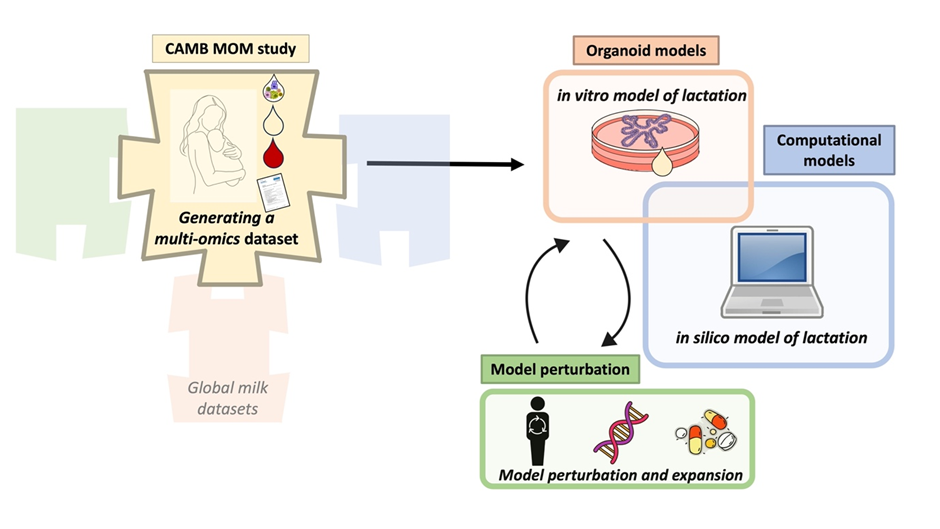Key Areas of Interest:
The early days of life sets the scene for an individual's long-term health. Human milk provides the best source of nutritional, developmental and immune support for the infant. Therefore it is unsurprising that breastfeeding is recommended by the World Health Organisation for the first 12 months of an infant's life. Despite the clear importance of human lactation, it remains a greatly understudied area. Supported by a UKRI Future Leaders Fellowship, Dr Alecia-Jane Twigger leads the Cambridge Lactation Lab to develop innovative lab-grown and computational models of human lactation to study milk production.
We collect data on human milk samples in the CAMB MOM study to enhance our laboratory-based models of human lactation. Furthermore, using computational models, we will provide greater insights into the influence of genetics, ancestry, and metabolic predispositions on milk synthesis and secretion.
Working with cutting-edge scientific tools, our mission is to understand how human lactation works. We aim to identify strategies to improve breastfeeding, particularly in women with low supply, to enhance the long-term health outcomes of women and children.
Key research questions:
- What are the biosynthesis pathways involved in the synthesis and secretion of human milk?
- What factors are necessary to render human milk organoids to produce milk?
- Is there lactocyte cell specification to make different components of milk?
- What is the molecular basis of low milk production?
- What key factors influence a mammary cell to develop normally (i.e. produce milk) compared to abnormally (i.e. breast cancer).

